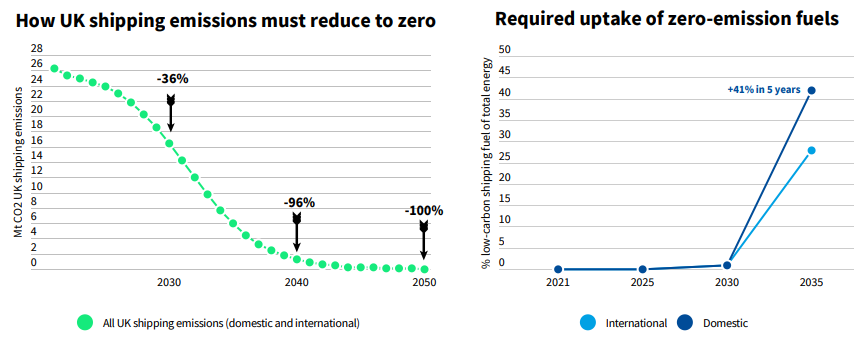Transport and Environment (T&E) recommends the use of mandates to create a market for both the supply and use of e-fuels, and achieve the required emissions reductions for Net Zero and the UK carbon budgets.
As T&E informs, at the level of the International Martime Organization, the UK has endorsed a goal-based maritime emissions reduction pathway called the Science Based Targets initiative (SBTi). To meet the SBTi pathway will require large-scale use of zero-emission marine fuels and energy, T&E recommends that the UK uses fuel mandates to drive the uptake e-fuels.
Mandates are effective instruments already in use by the UK government.

Did you know?
According to T&E, in 2021, UK shipping used almost 7 million tonnes (Mt) of fossil marine fuel oil, producing 26.3 Mt of carbon dioxide equivalent (CO2e) and accounting for over 18% of UK transport emissions.
T&E analysis also shows the least-cost, scalable technology options to be based on renewable electricity: directly for battery electric charging and power requirements at berth, and indirectly though e-hydrogen and e-hydrogen-based e-fuels such as e-ammonia and e-methanol for propulsion.
T&E calculated that meeting these assumptions with a combination of zero emission renewable e-fuels and direct electrification – the most cost-effective options – would require:
- 44TWh renewable electricity, to produce 140,000 tonnes hydrogen
- 3.1 million tonnes ammonia/methanol, and nearly 2TWh shore power
- 44TWh would require an additional 1,360 8MW wind turbines.
































































